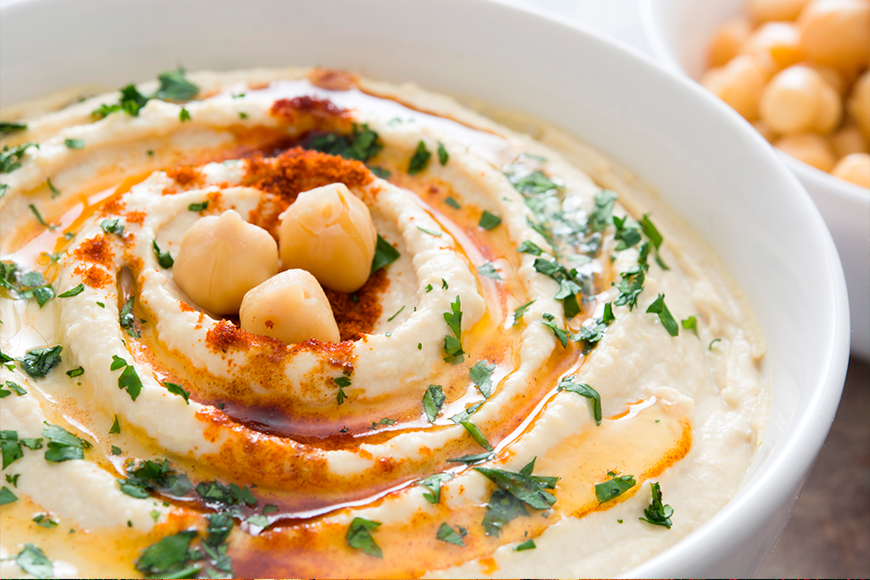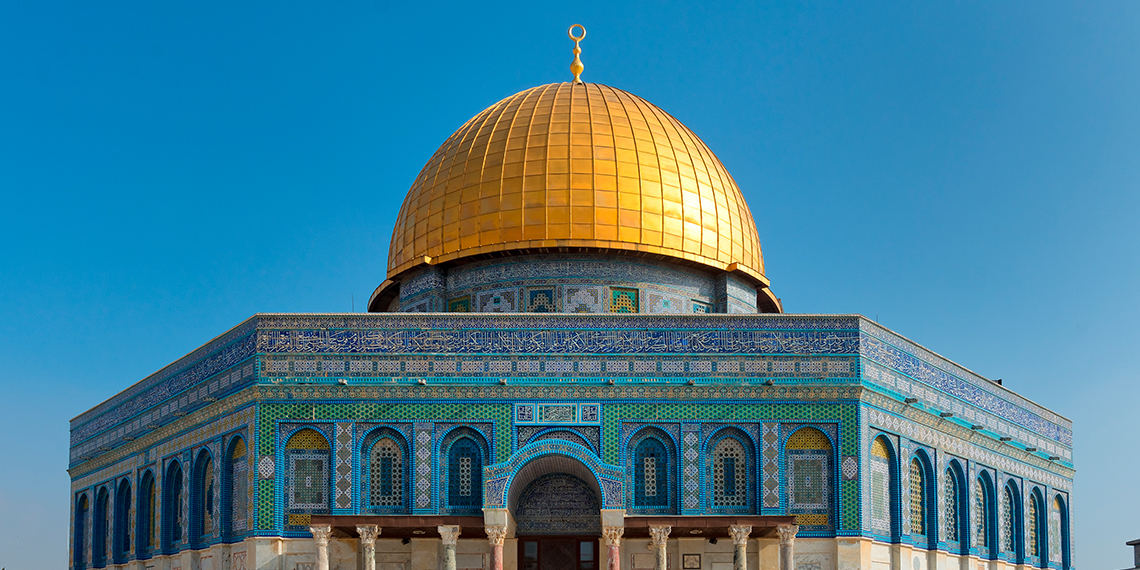Traveling Israel can be a magical experience, but making the commitment of going someplace new and unfamiliar often goes hand in hand with a good deal of time spent preparing in advance, which is not always easy to come by. As a seasoned travel company, we are keenly aware of this fact. So, to save you the time and trouble of having to do your own research, we decided to do it for you! Here are some ideas to get you started on planning your trip to Israel.
When to Visit
Deciding on the best time to visit will ultimately depend on the kind of holiday you are looking for. Israel in the summer can be scorching hot, with average temperatures reaching upwards of 85 degrees, making this the perfect time of year for a beach holiday. Late spring and early fall are a great choice if you are interested in doing a lot of tours or outdoor activities since temperatures are pleasantly warm and the weather is fairly dry. Crowds tend to be thinner and therefore sites are quieter during this time of year as well (with the exception of Passover and the Rosh Hashanah and Yom Kippur holiday periods). This is also a good time to get the most bang for your buck as smaller numbers of tourists means better hotel prices! Winters in Israel typically last from late October to February or March. These months are wet and can get quite cold, but they offer a good opportunity to take advantage of lower prices and spend the holidays in the Holy Lands.
Where to Go
Tel Aviv - The Miami of the Middle East: While it may lack Jerusalem’s historic appeal, over the years Tel Aviv has acquired an identity all of its own as one of the world’s most energetic and scintillating metropolitan cities. Boasting an irresistible combination of endless sandy beaches, colorful markets, a thriving culinary and nightlife scene, and a full calendar of events throughout the year, to visit Tel Aviv is to experience modern Israel at its finest.
Jerusalem – The Holy City: Timeless, fascinating, and shrouded in mysticism, Jerusalem embodies the history of Israel. Just walking from the Church of Holy Sepulcher to the Western Wall and the Al Aqsa Mosque is enough to get a small taste of the cultural mosaic that was born of the interplay between the world’s three major religions. Add to this a plethora of fascinating museums and attractions, and it quickly becomes clear why Jerusalem should be your go-to destination if you’re looking for a culture fix.
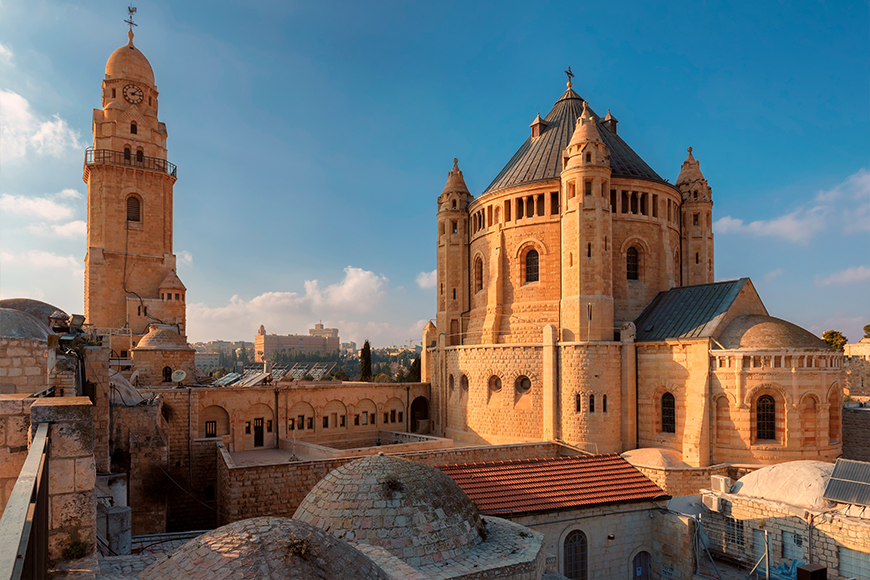
What to See
Masada – Set against the breathtaking backdrop of the Negev Desert, the fortress of Masada is arguably one of Israel’s most dramatic sites. As the place where the members of the Jewish revolt made their last stand against the might of the Roman Empire, Masada and its legends are now deeply ingrained into Israel’s national mythology and an absolute must see during your time in the country.
Bahá’í Gardens - The Hanging Gardens of Haifa are positively stunning. Sacred ground to the adherents of the relatively obscure Bahá’í faith, the gardens are a temple to their god Bah. Whether you are interested in learning about the faith or just want to take in the view, the Bahá’í Gardens certainly deserve a spot on your Israeli bucket list.
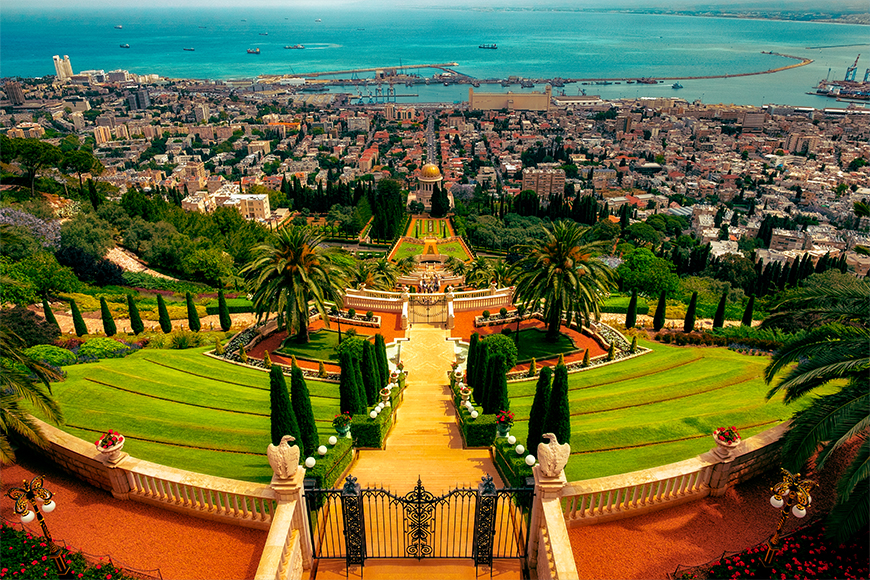
The Dead Sea - Located 1,412 feet below the sea and with a salinity level almost ten times higher than that of the world’s oceans, the Dead Sea is one of the saltiest bodies of water on earth giving it enough buoyancy to make sinking all but impossible. Enjoy the novelty of floating around the Dead Sea and don’t forget to cover yourself with some revitalizing Dead Sea mud, your body will thank you!
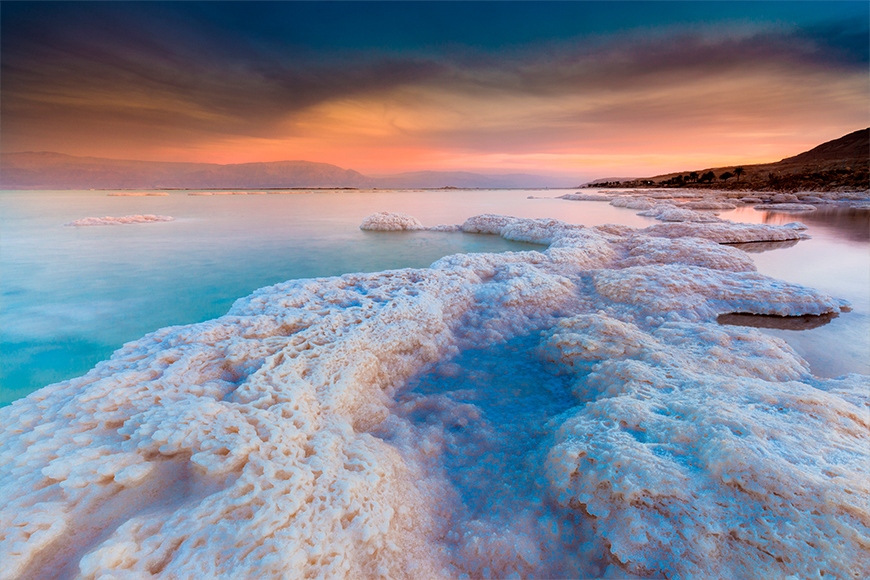
What to Eat and Drink
Israeli cuisine is largely based on the traditional dishes that were brought to the country by immigrants from Eastern Europe but there are also clear Arabic influences. Meshawasha is an excellent example of Israeli cuisine, a mixture of hummus, tahini, garlic, lemon, and an assortment of spices that is commonly eaten with pita bread. If you’re looking to try some local drinks, you’ll be excited to know that Israel produces its own beer and wine. If you prefer coffee, there's plenty of Israeli coffee (short and strong) and Arab coffee (thick and slightly bitter) to be had too.
